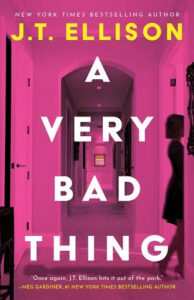Unsure. Uncertain. Unwilling.
When faced with a matter of conscience, a dangerous situation, a threat to your very being—or that of your family and friends—what would you do? Would you happily step up and lead others into the fray? Would you shrink away and hope that the problem disappears? Are you willing to be a hero? Able to be a leader? Or are you just a person, a regular, not in the spotlight, living your life person, who is confronted by an untenable situation not of your own making, and forced to make a life-altering choice? What would that choice be? To heal, to fix, to conquer? To disappear, to run, to hide? To seek the strength of another? To lead? To solve the case on your own?
This overarching scenario is my absolute favorite story theme. It is a rich vein of gold to mine, and I do so over and over in my books. Finding a character on their worst (or best) day, thrusting them into this quandary, and seeing how they react, creates an amazing story. They say that those who want to lead shouldn’t, and those who don’t should. The theme of women finding their power plays into this parable perfectly.
I especially love stories of ordinary women forced into action. Their door is knocked upon by destiny, and they must choose: accept the challenge, or slam the door in adventure’s face. This is the heart of the suspense genre: an innocent, faced with certain death or destruction, who must rise above and save herself—and others. Or an unreliable narrator doing battle with their own mind, struggling through the story to ascertain what’s real and what isn’t.
In my most recent novel, A Very Bad Thing, I dive into this theme using a more devious device: The main character has been murdered, and the story revolves around all of the people closest to her who might have a motive to kill. Columbia Jones is a world-renowned author, and in starting with her death, the reader must rewind her life to show all the ways in which she achieved that crowning glory, only to have it cruelly stripped away. It’s not the only unique take on the myriad ways women find their power in today’s novels.
From feminist retellings to unreliable narrators to expansive fantasy worlds, the following novels all celebrate women embracing their inner fires, mastering mystical abilities, and claiming power through acts of heroic leadership against daunting odds.
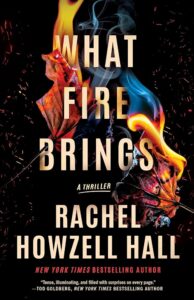
What Fire Brings by Rachel Howzell Hall
When Bailey Meadows goes undercover at a writing retreat to find a woman who’s gone missing from her own private investigation firm, it initially looks like she’s completely in control of the situation. Quickly, the tables are turned. When she is chosen to co-write with the legendary Jack Beckam, Jr, Bailey is thrust into a multi-layered mystery and must find herself to stay alive. Set against the backdrop of Topanga Canyon and the very real threat of an unseasonable wildfire, Bailey must journey deep into the past—and her own psyche—to survive.
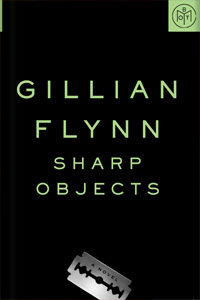
Sharp Objects by Gillian Flynn
When reporter Camille Preaker returns to her hometown to cover the murder of two girls, it’s clear from the outset she’s going through hell. Returning to a home and family that look beautiful on the surface but cut razor blade deep destabilizes her, revealing a dizzying array of secrets—most about Camille’s own past. Can an unreliable narrator be a woman finding her power? You betcha—and Camille is the perfect example of a woman who succeeds against all odds.

My Sister, The Serial Killer by Oyinkan Braithwaite
One of the most original stories I’ve ever read, Korede is a sweet girl whose sister Ayoola is a serial killer—and makes her complicit in the murders. Korede is willing to be her sister’s keeper, but when Ayoola sets her murderous sights on Korede’s longtime love, choices must be made. Set in Lagos, Nigeria, the setting’s conventions and domestic expectations become part of the tale, helping and hurting Korede’s bid for freedom from her sister’s murderous impulses.
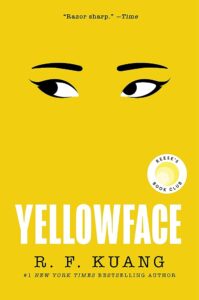
Yellowface by R.F. Kuang
Athena Liu, a rising star in the own voices movement specializing in Asian fiction, dies at the beginning of this haunting satire. Her best friend, June Hayward, is a struggling white author who does what she sees as the only logical thing when she realizes her friend has a drafted manuscript of unsurpassing beauty and literary achievement on her desk: she steals her BFFs manuscript for her own, gets it published to unbelievable fanfare, and spends the rest of the story trying to live with the lie she’s created. It’s impossible not to root for June even though she’s done the unimaginable, and the insider look at the vagaries of publishing is delicious. June is the ultimate anti-hero, a woman whose power is found in the strength of another.
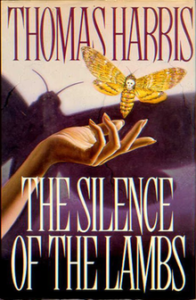
The Silence of the Lambs by Thomas Harris
A much more classic version of the woman finding her power theme, Clarice Starling is an up-and-coming FBI agent trainee who is tasked with finding a serial killer using the ultimate weapon—another serial killer. When she captures the sick attention of Dr. Hannibal Lecter, she must overcome her own childhood trauma to unlock the killer’s secrets, and Dr. Lecter is more than happy to drag her through the coals for his own twisted pleasure. Clarice trades her secrets, and ultimately her soul, to achieve her goals. This manipulative and terrifying story cemented the forensic thriller in the canon and is the gold standard for the thematic journey we’re on today.
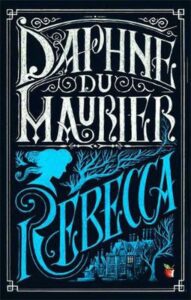
Rebecca by Daphne Du Maurier
The second Mrs. de Winter is one hell of a strong lady. The young ingenue is rescued from a paid companionship by the rich widower Maxim de Winter and taken back to his familial home in Cornwall, the infamous Manderley, where she is in turns disrespected, haunted, reviled, and otherwise treated abominably by the staff who loved and cherished the first Mrs. de Winter. She also does supernatural battle with the estate itself. Our anonymous lead refuses to be daunted, though, and when the tables turn, it is she who provides the strength to her languishing husband.
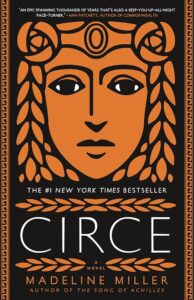
Circe by Madeline Miller
A reimagining of the mythological Circe, daughter of the sun god Helios, and the nymph Perse, a minor goddess who discovers her power in witchcraft. An absolute stunner of a tale, Circe is banished to the isle of Aiaia, where she takes full advantage of her burgeoning power to right the wrongs against her and womankind in general. Even her infamous encounter with Odysseus has a completely new spin, and she makes her own place in the history books. Without a single misstep throughout, Madeline Miller weaves a tale so heartbreaking and true that one wonders how mythology itself would have been reshaped were it understood to be true.
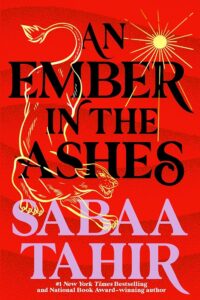
Ember in the Ashes Quartet by Sabaa Tahir
Three of the four main characters in this quartet are women, all on their own unique paths to power. One is the cruel commandant of the battle school Blackcliff Military Academy, one the heroic and ferocious mask-in-training Helene Aquilla, and one is the quiet, smart Laia: a slave and Scholar who becomes a spy for the resistance, finds her magic, and becomes more powerful than them all. These books are wildly original, using southern Asian mythology and a caste system coupled with a violent world similar to ancient Rome, and the women are all satellites to the top student at Blackcliff, Elias Veturius, without ever once becoming subservient. A wonderfully imagined series.
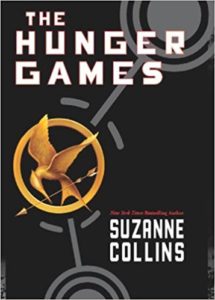
The Hunger Games Trilogy by Suzanne Collins
Katniss Everdeen is probably my favorite and most accessible example of this theme. Living in the desolate District Thirteen under the brutal authoritarian rule of the Capitol, Katniss is already a rule breaker, sneaking outside the confines of the village to hunt. But when her little sister is chosen by lottery to participate in the annual Hunger Games, a twisted repressive show pitting the children of the districts against one another in a fight to the death, Katniss unhesitatingly volunteers as “tribute.” In taking her sister’s place, she lights a match to a smoldering spark of a new resistance making its way through the districts. Katniss doesn’t want power, she just wants to save her sister—and that selfless gesture makes her the perfect symbol for the resistance. She becomes a hero because she has no choice, finding her power and revenge in the only way she knows how—surviving, and saving those around her.
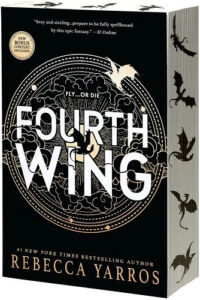
Fourth Wing by Rebecca Yarros
Last but not least, the fabulous story of Violet Sorrengail, daughter to the fearsome General Sorrengail, who was trained from birth to be a scholar because of her brittle body (Violet has Ehler’s Danlos, a connective tissue disorder shared by the author of the book, and also the author of this essay.) In the book’s shocking opening, Violet’s heartless mother, the general, has decided she will instead be a part of the Rider Corps—as in, the riders of battle dragons. This should condemn weak Violet to death, but with courage and ingenuity, instead, she becomes the most powerful Rider of them all. Overcoming her handicap, using her brains, and falling in love with a forbidden enemy soon follows. It’s a brilliant start to an amazing series and the perfect place to end this list.
***


